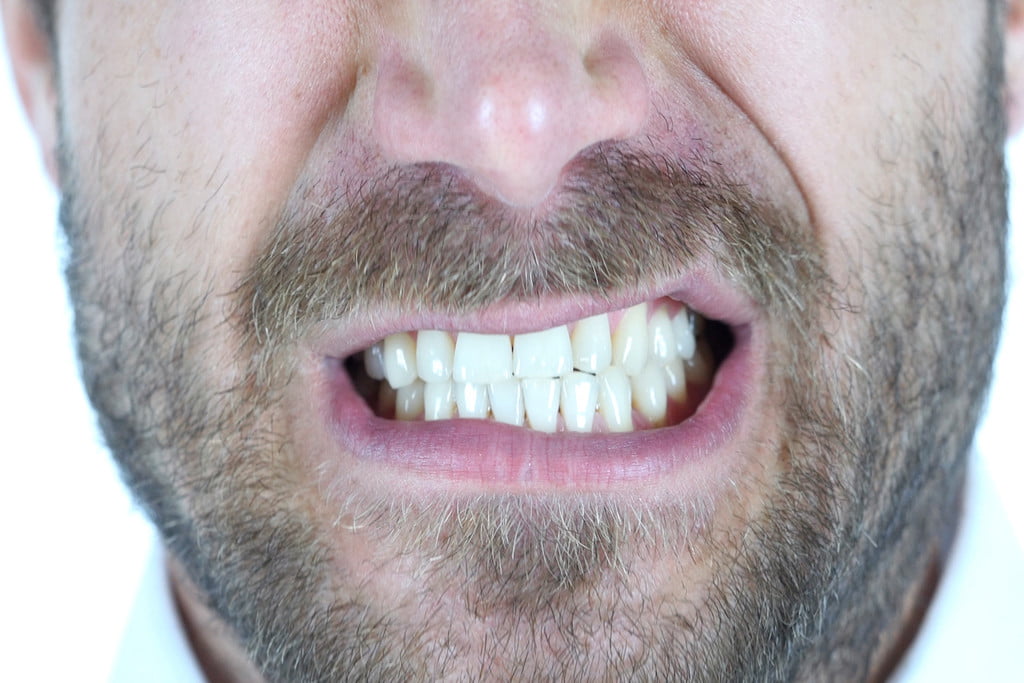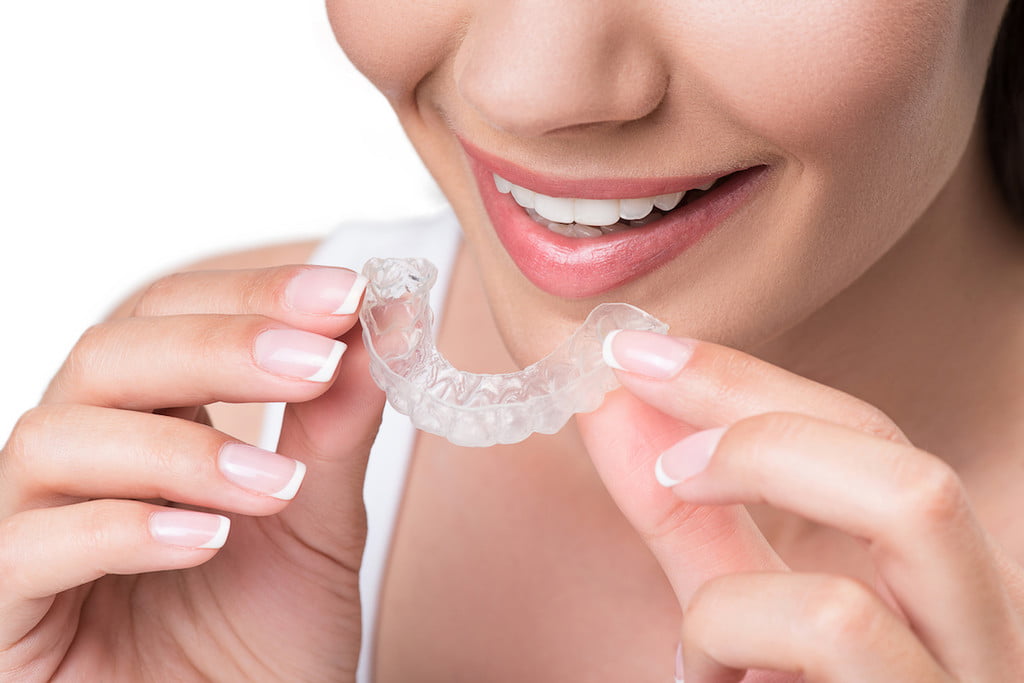Bruxism is a condition in which a person grinds, gnashes, or clenches their teeth. Teeth grinding is a condition that can affect adults and children and can occur during the day or while you sleep. While many people don’t know they are doing it, others catch themselves because it can (but doesn’t always) cause tooth and jaw pain, headaches, and, for some, major dental problems. Experts have found increased cases of teeth grinding during the pandemic — but you should know there are options to relieve it.
Because you used to grind your teeth as a child doesn’t necessarily mean you will as an adult. There are options that can help prevent teeth grinding, but making sure you know what the best option is for you is imperative. Many dentists will recommend night guards and retainers for tooth-related issues, but they are not the same thing.

Signs of teeth grinding
Because people don’t often know they are grinding their teeth during the night, there are signs you can look for to know for sure. If you have teeth that are flattened, fractured, or chipped, or you have worn tooth enamel, tooth pain or sensitivity, sore jaw muscles when you wake up, neck or face pain, or a dull headache that lingers around your temples, you may grind your teeth. If you often wake during the night or find you have difficulty sleeping, you may also grind your teeth.
If you sleep next to someone, they may be able to confirm that you grind your teeth. It can often be loud enough for someone to hear who’s lying next to you. If you’re unsure, your dentist or orthodontist should be able to do a quick exam and tell you definitively and offer advice about how to stop grinding teeth.

Mouthguard or retainer?
Because of the damage teeth grinding can cause, dentists will often recommend mouth guards for teeth grinding. Night or mouth guards are dental appliances you place on your upper and lower teeth before you fall asleep to help protect your teeth and jaw from teeth grinding or clenching, putting a barrier between your teeth.
Mouth guards are made of soft rubber or hard plastic, depending on the level of teeth grinding, and should be fitted by your dentist. Often used for high-contact sports, mouth guards are one of the cheapest and easiest ways to prevent further tooth damage. Retainers are used to keep your teeth properly aligned, and professionals typically recommend them after a person has braces or other orthodontic work done to prevent teeth from shifting. A retainer is usually made out of metal or plastic and is not recommended as a preventative measure for grinding your teeth.
Teeth grinding is a fairly common condition that can be treated and solved within a couple of months, providing the reason for grinding your teeth also can be treated. More than 200,000 cases per year are reported in the U.S., and the condition does require a medical diagnosis so it can be treated properly by a professional. While it is fairly easy to fix, the damage that can be done if left untreated can be significant. If you realize you’re grinding your teeth, do your best to catch it early, and consult with a dentist about next steps to preserve your teeth…and your sanity!



